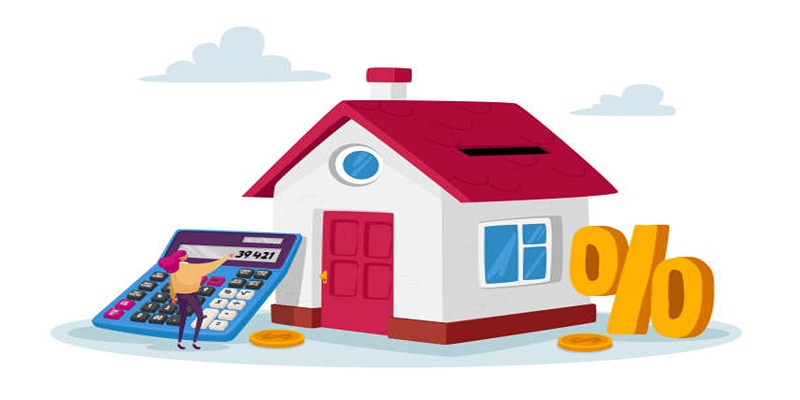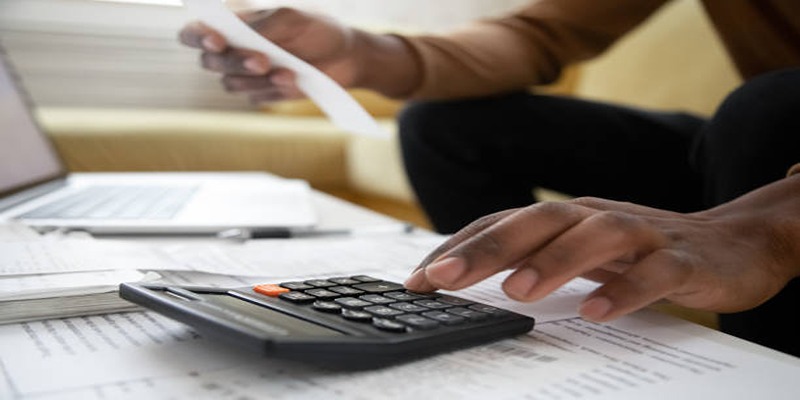Advertisement
Creating a home budget may seem like a challenging task, but it doesnt have to be. A budget is simply a plan for managing your money so you can cover your needs, enjoy your wants, and save for the future. By tracking your income and expenses, you can take control of your finances and make better decisions about your spending. This guide will walk you through ten easy steps to build a budget that fits your life and goals. Whether you're saving for a big purchase or just want to reduce financial stress, these steps will help you get started.

Begin by defining what you hope to achieve with your budget. Are you looking to pay off debt, save for a vacation, build an emergency fund, or break free from living paycheck to paycheck? Clear goals give your budget purpose and provide the motivation needed to stay on track. Write down both short-term and long-term financial objectives to guide your planning. For instance, a short-term goal might be saving $200 for an upcoming trip, while a long-term goal could be building a retirement fund or buying a home. Keep your goals realistic and attainable to set yourself up for lasting success.
The next measure is to calculate your gross income. This includes any wages from employment, freelance, or part-time income, interest, and royalties and any government payment. Remember to subtract the taxes that have been taken from your income so that you know how much money you are working with each month. If your income is irregular or depends on the commission, it is better to multiply an average income of the last few months.
To calculate your expenses, start by listing all your fixed and variable expenses. Fixed expenses are those that remain the same each month, such as rent or mortgage payments, insurance premiums, and car payments. Variable expenses, on the other hand, can fluctuate and include items like groceries, utilities, entertainment, and dining out. Be as thorough as possible by reviewing bank statements, credit card bills, and receipts to ensure you dont miss anything. It can also be helpful to categorize your expenses (e.g., housing, transportation, food, savings) to make tracking easier.
After calculating your expenses, take a close look at where your money is going. Are there areas where you can cut back? This could involve finding ways to reduce utility bills, switching to a cheaper phone plan, or eating out less frequently. Be honest with yourself and identify any unnecessary expenses that can be eliminated or reduced. This step may require some sacrifices, but it will ultimately help you reach your financial goals.
Now that you have a clear picture of your income and spending, its time to set limits for different expense categories. Begin by allocating your income to cover your essential expenses, such as housing, utilities, groceries, and transportation. These should always take priority in your budget. Next, decide how much you can reasonably put toward goals like savings or debt repayment. Finally, set limits for discretionary spending, like entertainment, dining out, or hobbies. This ensures youre not overspending in these areas while still allowing yourself some room to enjoy life.
There are many budgeting methods, and the one you choose should fit your lifestyle and preferences. Popular options include the 50/30/20 rule, where 50% of your income goes to needs, 30% to wants, and 20% to savings or debt repayments. Alternatively, you might prefer a zero-based budget, where every dollar is assigned a purpose, or an envelope system, where cash is divided into envelopes for specific categories. Try out different methods to see which one works best for you and helps you stay organized.
Technology can be a valuable tool when creating and managing your budget. There are many apps and software programs available that can help you track your income and expenses, set financial goals, and monitor your progress. Some even offer features like bill reminders, spending analytics, and budgeting tips. Find the right tool for you to make budgeting easier and more efficient.
Its crucial to regularly review your budget to ensure it is still working for you. Life changes happen, such as job loss or unexpected expenses, which may require adjustments to your budget. Make it a habit to review your budget at least once a month or when significant changes occur. This will help you stay on track and make any necessary adjustments to reach your financial goals.

Creating a budget is one thing, but sticking to it can be much more challenging. Its essential to remain disciplined and committed to your goals by consistently tracking your income and expenses, adjusting your spending habits as needed, and avoiding unnecessary splurges. Remember why you created the budget in the first place and visualize how achieving your goals will benefit you in the long run.
While it's important to stick to your budget, it's also crucial to be flexible when necessary. Unexpected expenses or changes in income may require you to make adjustments to your budget. Instead of viewing this as a failure, see it as an opportunity to improve and adapt your financial plan. Be open to change and willing to revise your budget as needed to help you reach your financial goals.
Managing your finances and sticking to a budget is an ongoing process that requires commitment and perseverance. Remember, it's not about achieving perfection but rather making progress towards your financial goals. Celebrate your successes and learn from any setbacks along the way. Stay focused, stay disciplined, and stay flexible. With determination and a solid financial plan, you can take control of your finances and build a secure and prosperous future. Start today and let your financial journey begin!

By Nancy Miller/Apr 16, 2025

By Paula Miller/Apr 01, 2025

By Mason Garvey/Jan 03, 2025

By Pamela Andrew/Dec 05, 2024

By Madison Evans/Oct 24, 2024

By Elva Flynn/Dec 07, 2024

By Elena Davis/Jan 08, 2025

By Darnell Malan/Dec 05, 2024

By Tessa Rodriguez/Mar 16, 2025

By Mason Garvey/Dec 15, 2024

By Elva Flynn/Oct 10, 2024

By Verna Wesley/Oct 10, 2024